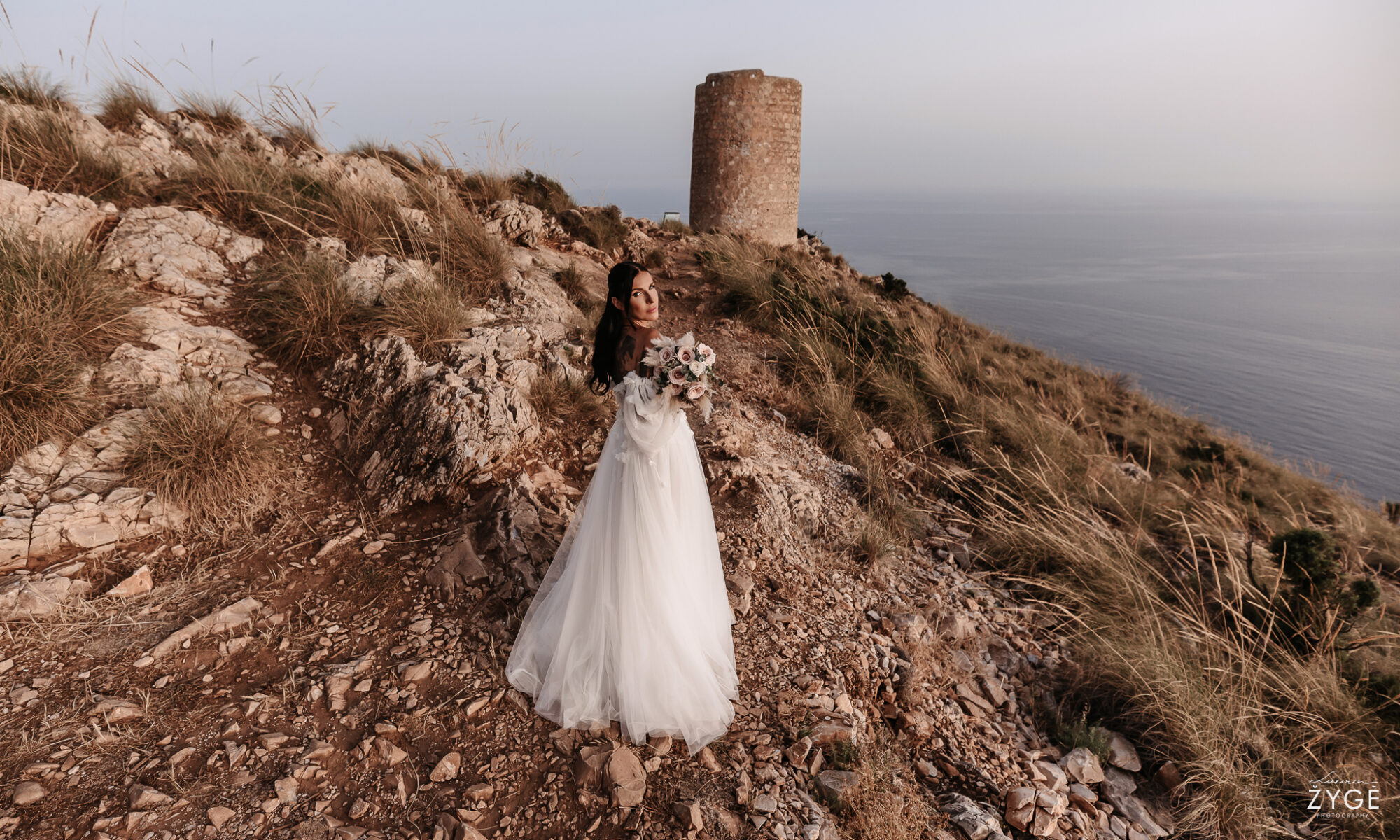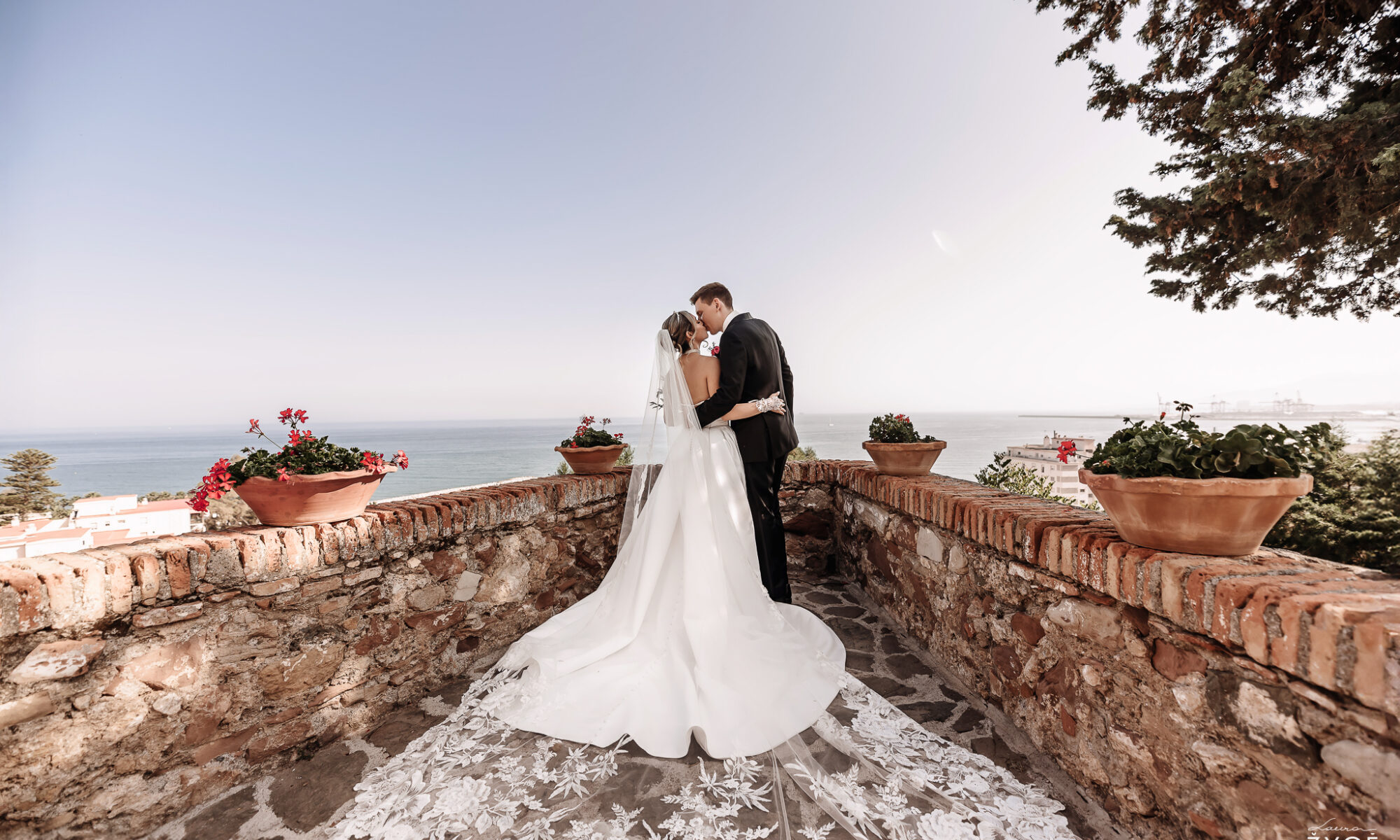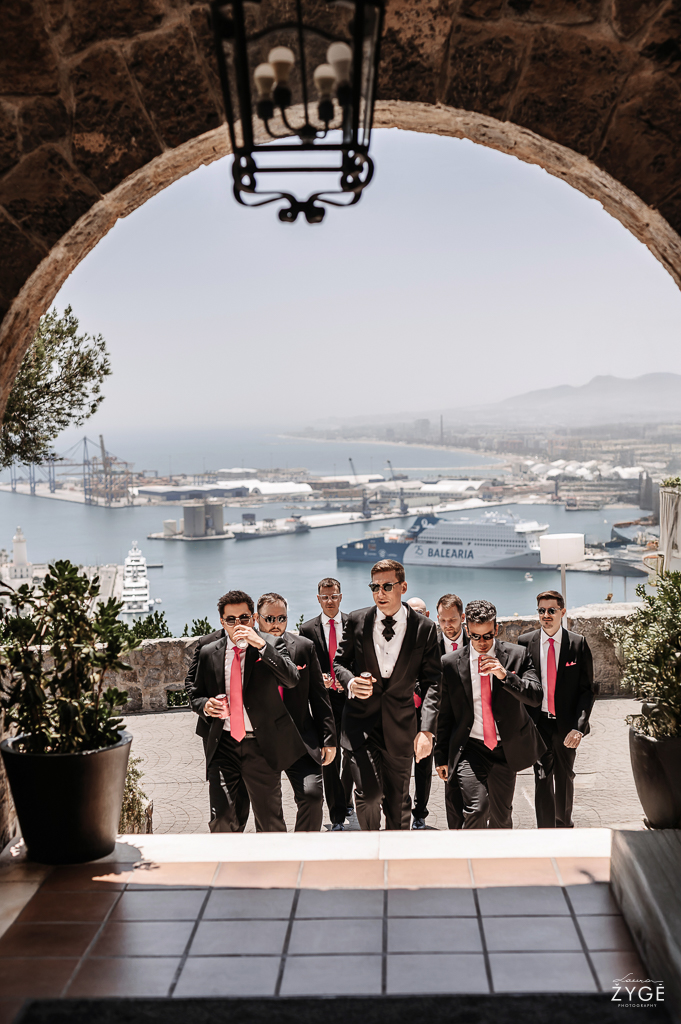Weddings in Málaga – Your ultimate guide to a dream destination weddings
A wedding in Málaga is an unforgettable chance to tie the knot in one of Spain’s most beautiful locations. This southern Spanish gem, blessed with a stunning Mediterranean coastline, exceptional climate, and rich culture, is an increasingly popular choice for foreign couples dreaming of a distinctive destination ceremony. Málaga offers everything newlyweds could want—breathtaking scenery, historic venues, great food, and authentic Andalusian charm.
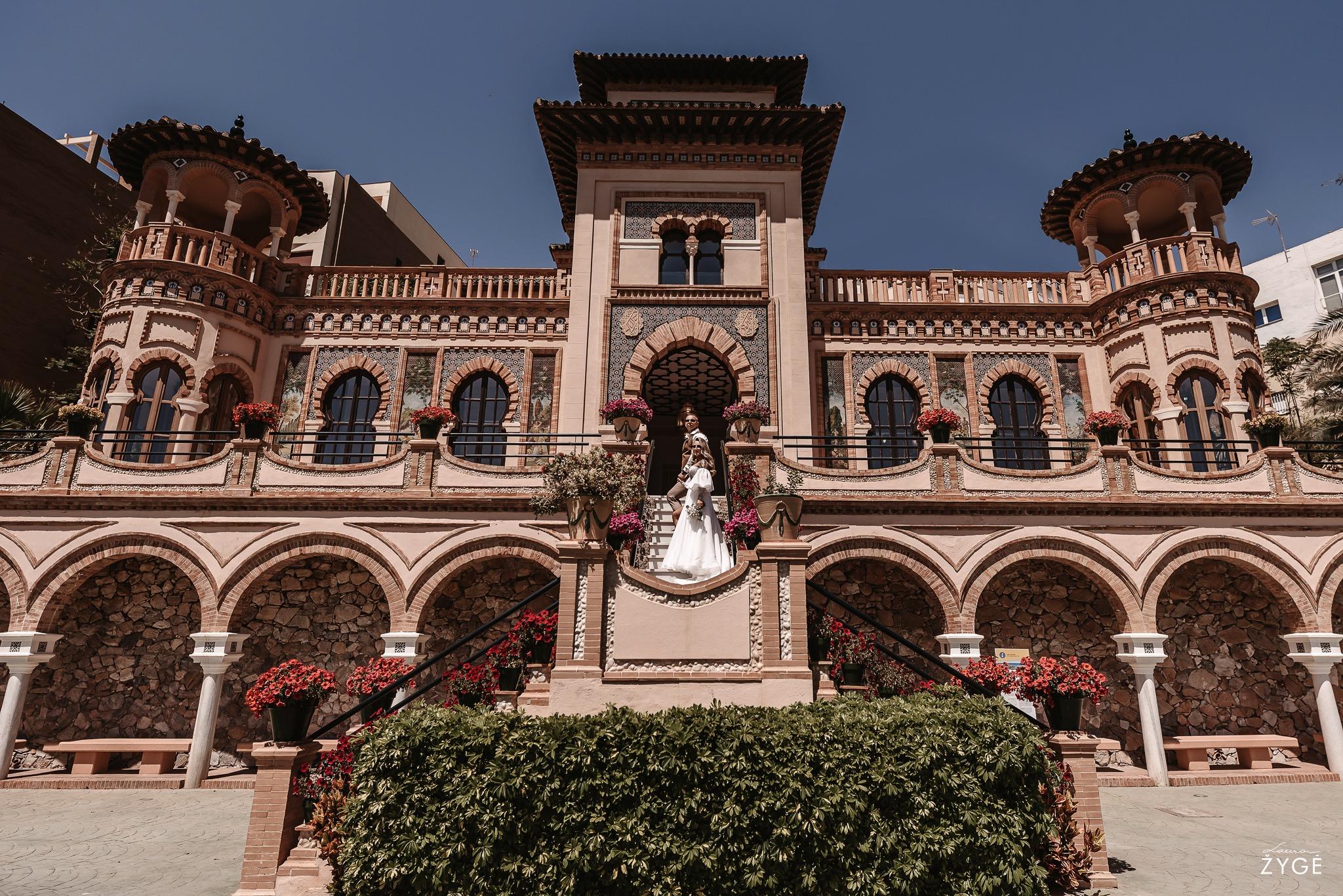
In this comprehensive guide, you’ll find all the essentials for planning a wedding in Málaga—from choosing the best ceremony locations and understanding legal requirements to weaving in local traditions, budgeting, and practical tips. Whether you imagine a luxury beach wedding or a cozy ceremony among olive groves, Málaga gives you countless ways to create an unforgettable day.
Why choose Málaga for your wedding?
Málaga is a true jewel of Andalusia with plenty of reasons to celebrate here. First, the exceptional weather—over 300 sunny days a year—pretty much guarantees clear skies for your ceremony. The Costa del Sol coastline serves up jaw-dropping views that make a perfect backdrop for your photos.
- legendary climate and almost guaranteed good weather
- venue variety—from luxury beaches to historic villas
- easy access—an international airport with flights from many European cities
- more budget flexibility compared to other popular wedding hotspots
- authentic Spanish vibe and hospitality
Málaga vs. other Spanish regions
While Barcelona and Madrid have urban appeal and Seville boasts flamenco culture, Málaga stands out with its Mediterranean seaside charm, a calmer pace, and often lower prices. Unlike the packed tourist islands of Tenerife or Ibiza, Málaga keeps its authentic Andalusian feel while offering all the infrastructure you need for an international wedding.
Unlike northern Spain, Málaga can deliver great weather even off-season—between March and November you can expect sunny days ideal for outdoor ceremonies. Local wedding traditions, cuisine, and hospitality create a unique atmosphere that sets Málaga apart from other popular wedding spots in Europe.
Top wedding venues in Málaga
Málaga offers an incredible range—from plush seaside resorts to intimate historic estates. Each space has its own personality to match different tastes and wedding visions.
Beach resorts and villas
The Costa del Sol is full of wonderful places with Mediterranean views. Marbella Club Hotel is one of the most luxurious options, with elegant gardens and private beach access. Kempinski Hotel Bahía in Estepona impresses with subtle luxury and beautifully kept tropical grounds. If you’re after a more contemporary vibe, Hard Rock Hotel Marbella offers modern spaces with striking sea views.
Private villas such as Villa Padierna Palace or Finca La Concepción give you more privacy and flexibility. These properties often feature their own gardens, pools, and spacious terraces—perfect for both intimate celebrations and larger parties.
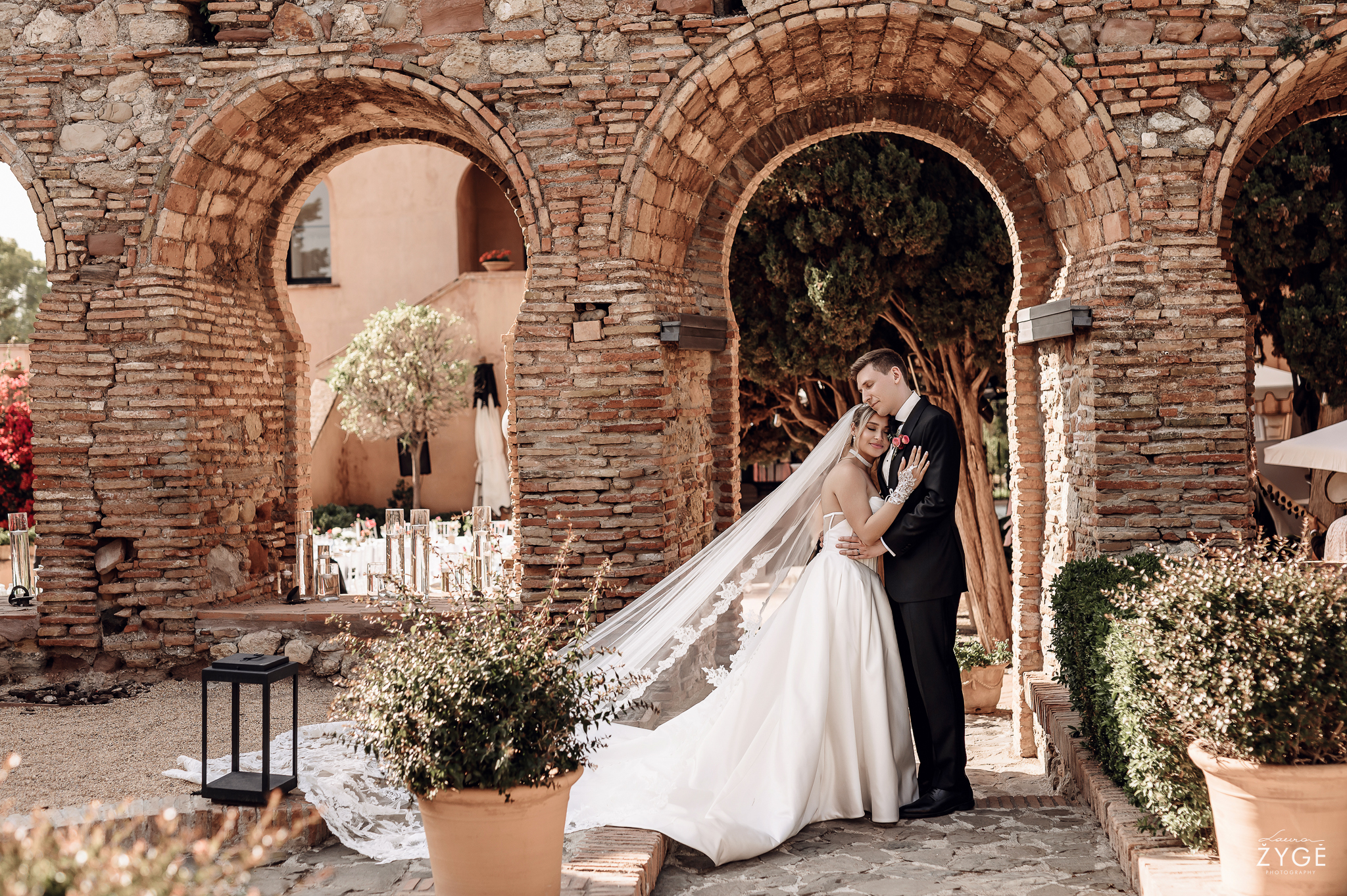
Historic and rustic settings
For history lovers, Málaga has standout venues steeped in the past. Castillo de Santa Catalina—an impressive 12th-century fortress surrounded by olive groves—adds a royal feel to your ceremony. Hacienda Nadales, an authentic Andalusian estate with a traditional courtyard and vineyards, is ideal for a romantic countryside celebration.
Wine enthusiasts can consider a vineyard wedding. Bodega Málaga Virgen and Bodegas Quitapenas offer the chance to say “I do” among the vines, pair it with tastings, and give guests a truly Andalusian experience.
City venues and boutique hotels
In the city itself you’ll find charming boutique hotels like Room Mate Valeria and Palacio Solecio—historic buildings with modern comfort. The Málaga Automobile Museum is an unusual yet striking venue, offering a unique backdrop among classic cars.
Historic buildings in the center, such as the Palacio de Congresos or Teatro Cervantes, provide elegant interiors for ceremonies—perfect for couples who love urban architecture.

Planning a Málaga wedding: step by step
Planning a wedding abroad can look complicated, but a solid plan keeps stress at bay. Here’s a detailed roadmap to help you organize your dream day in Málaga.
Ideal planning timeline
Ideally, start 12–18 months before your date. That gives you time to secure everything you need—especially if you’re targeting peak months (May–June or September–October).
- 12–18 months: pick a date, book the venue, and start looking for a planner
- 9–12 months: send save-the-dates, book the photographer and other key vendors
- 6–9 months: arrange menu tastings, plan the decor, order wedding attire
- 3–6 months: send formal invitations, build a detailed schedule
- 1–3 months: finalize details with vendors, organize travel and accommodation
Choosing a wedding planner
For destination weddings, a local planner is priceless.
They’ll bridge any language gaps and connect you with trusted local vendors. Many work in multiple languages, including English, and can help blend national couples customs with Spanish traditions.
Legal requirements for marrying in Spain
For foreign citizens, the legal side can be complex. Many couples opt for a symbolic ceremony in Málaga and register the marriage in residence country before or after the celebration.
If you do decide on a legally binding ceremony in Spain, you may need:
- valid passports
- birth certificates with apostilles and official Spanish translations
- a certificate of marital status (issued within the last 3 months)
- proof of Spanish residency (at least one partner having lived in Spain for 2+ years)
- to file documents with the local civil registry (Registro Civil) at least 2 months in advance
Because of this complexity, most foreigners choose a Catholic ceremony or a symbolic wedding in Spain. It’s worth consulting a lawyer or specialist planner who knows international marriage rules.
Guest accommodation and transport
Sort out guest lodging early. Depending on your venue, consider a group hotel block—often with discounts. Along the Costa del Sol you’ll find options at every price point—from luxury resorts to cozy boutique hotels and Airbnb apartments.
Transport matters too—think about group transfers from the airport to hotels, and between hotels and the venue. That streamlines logistics and reduces the chance of guests getting lost or arriving late.
Key tips for an unforgettable Málaga wedding
Your wedding can be extra special if you embrace local flavor and regional nuances. Here are tips to create an authentic, memorable celebration.
Weaving in Spanish traditions
Local customs can enrich your ceremony and make it unique.
Consider including:
- Arras – the ritual of giving 13 coins, symbolizing shared stewardship of the couple’s wealth
- Naranja y limón – an orange and lemon moment symbolizing life’s sweetness and bitterness
- Flamenco performance – an authentic Andalusian show that wows guests
- Mantilla – the traditional Spanish lace headpiece the bride can wear
Local planners can suggest other Spanish traditions to blend with your own national customs in a way that feels meaningful to you and your families.
Best wedding season in Málaga
Málaga has great weather year-round, but some months are more comfortable for weddings:
- May–June – ideal temps (around 22–27°C), warm but not hot, low chance of rain
- September–October – a second sweet spot, the sea is still warm but peak heat has passed
- July–August – the hottest months; plan ceremonies for late evening
- November–April – fewer tourists and lower prices, but a higher chance of rain
Also check local holidays and events that affect hotel prices and availability—especially Holy Week (Semana Santa) and the Málaga Fair (Feria de Málaga).
Food and drink
Andalusian cuisine is a point of pride. Your menu can feature Spanish classics:
- a variety of tapas as canapés (jamón ibérico, albóndigas, tortilla)
- seafood paella as a main course
- gazpacho—refreshing on hot days
- local wines from Málaga’s vineyards
- traditional sweet Málaga wine with dessert
Many venues offer tastings so you can fine-tune the menu. You can also discuss adding a few your national dishes for a unique cultural mix.
Extra activities for guests
Since your guests are traveling to Málaga, give them more than just the ceremony:
- Arrange a coastal boat trip the day before the wedding
- Host a casual meet-up in a traditional tapas bar
- Offer a group vineyard tour with tastings
- Plan a farewell breakfast or lunch the day after the wedding
These extras enrich the experience and give you more time to connect in a relaxed setting.
Budgeting and hiring local vendors
Budget planning is one of the most important parts of a destination wedding. Málaga caters to a wide range—from luxury affairs to intimate celebrations.
Ballpark costs
A Málaga wedding can range from about €7,000 for a small celebration to €30,000+ for a larger, high-end event. Main cost categories include:
- Venue rental: €2,000–€10,000 depending on prestige and season
- Catering: €80–€150 per person (drinks included)
- Planner fees: €1,500–€3,500
- Photography & videography: €1,200–€4,000
- Music & entertainment: €600–€2,000
- Flowers & decor: €800–€3,000
- Wedding attire: €1,000–€5,000 (varies widely)
Keep roughly 10% as a contingency. Hiring a local planner can pay off in the long run—they often have vendor agreements and can secure discounts.
Music and entertainment
Music sets the tone, and Málaga offers plenty of options:
- traditional flamenco musicians and dancers for authentic Spanish flair
- string quartets or guitarists to create a romantic ceremony mood
- DJs who can mix international hits and your personal favorites
- live bands performing popular songs in multiple languages
Recommended local acts: Marbella Music, Málaga Wedding Bands, and Costa Entertainment. Discuss the set list in advance and make sure they can include songs that matter to you.
Flowers and decor
Málaga florists can craft stunning looks with local plants and blooms:
- Flor Valentín – wedding bouquets and full event styling
- Pedro Navarro – striking installations tailored to your theme
- Deseos Florales – options with a sustainable approach
Consider local touches like bougainvillea, olive branches, or lemon trees to create a true Mediterranean feel. Many florists offer virtual consultations before you arrive to align on your vision.
Conclusions
A wedding in Málaga is a fantastic choice for couples dreaming of a celebration framed by the Mediterranean’s beauty and Andalusian warmth. This wonderful part of Spain offers everything—from luxury beach ceremonies to cozy gatherings in historic estates, from authentic Spanish traditions to modern entertainment.
Thorough planning is the key to success. Start early, work with a trusted local planner, and choose your venue and vendors carefully. Staying flexible and open to new ideas helps create a one-of-a-kind celebration where national couple’s traditions meet Spanish spirit.
Your dream “Wedding in Málaga” is absolutely within reach, and this in-depth guide will support you at every step. Let Málaga’s sun, sea, and hospitality witness the start of your life together.
Frequently asked questions
What legal requirements apply to a foreigner couple marrying in Málaga?
Most foreign couples choose a symbolic ceremony due to Spanish legal restrictions, but civil/legal weddings are possible with advance planning and documentation. You’ll need valid passports, birth certificates with apostilles and Spanish translations, a certificate of marital status, and proof that at least one partner has lived in Spain for two or more years.
What’s the best time of year for a wedding in Málaga?
Late spring (May–June) and early autumn (September–October) are the most popular for pleasant weather and fewer crowds. Expect temperatures around 22–27°C and minimal rain.
How far in advance should we start planning?
Ideally 12–18 months ahead to secure preferred dates and vendors—especially for peak season.
What are typical Málaga wedding costs?
Budgets range from about €7,000 for intimate ceremonies to €30,000+ for luxury celebrations. The main drivers are the venue, catering, guest count, and extras like entertainment or photography.
